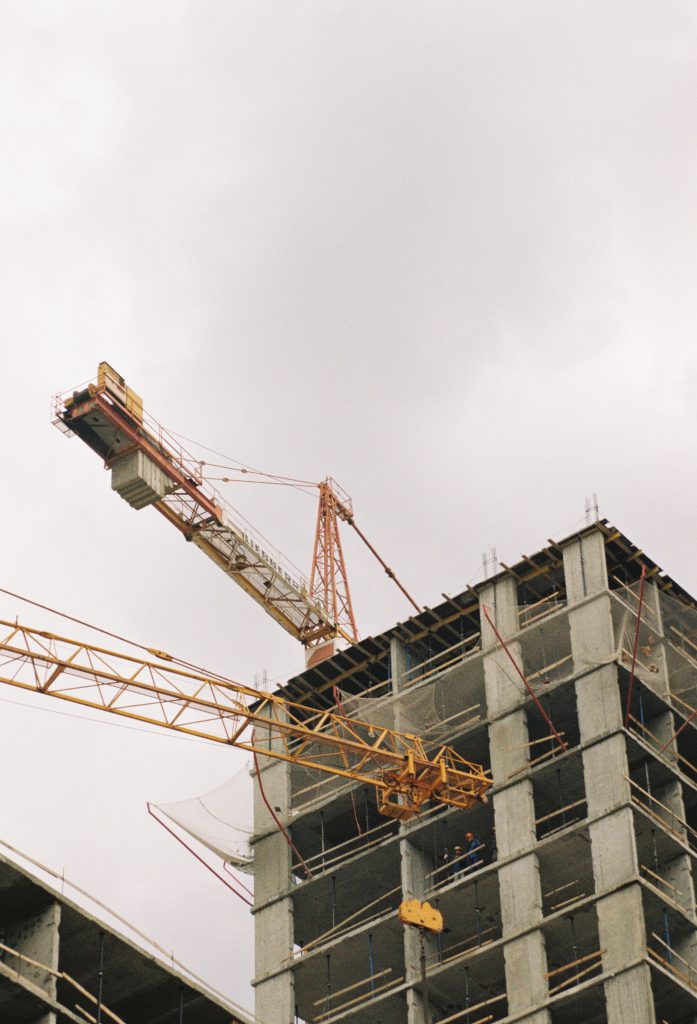Imagine you’re in the midst of a construction project, excitedly watching your dreams come to fruition. Suddenly, a legal dispute arises, threatening to derail your plans and bring chaos to the project. But fear not, for we are here to provide you with insight, reassurance, and guidance through this challenging situation. In this article, we will delve into common legal concerns that often plague construction projects, helping you navigate the complexities of the law. Our aim is to empower you with the knowledge and confidence to protect your interests and seek the assistance you need promptly. So, let’s address the elephant in the room and uncover the intricacies of legal disputes in construction projects.
The Importance of Resolving Legal Disputes in Construction Projects
Construction projects are complex endeavors that require coordination and collaboration among multiple parties. Unfortunately, disputes can arise during the course of a construction project, leading to delays, financial losses, and damaged relationships. It is crucial to address and resolve these legal disputes promptly to mitigate the negative impacts and ensure a successful project outcome.
Understanding the Impact of Legal Disputes on Construction Projects
Legal disputes in construction projects can have far-reaching consequences. They can result in costly delays, affecting project timelines and deadlines. Disputes can also lead to financial losses, as parties may be required to pay for additional materials, labor, or legal fees. Moreover, these disputes can strain relationships between contractors, subcontractors, owners, and other stakeholders, creating a hostile working environment that hampers productivity and collaboration.
Common Legal Concerns in Construction Projects
Several legal concerns commonly arise in construction projects. These include breach of contract, construction defects, payment disputes, claims and change orders, and delays and disruptions. Each of these concerns has the potential to escalate into full-blown legal disputes if not addressed promptly and effectively.
Importance of Seeking Legal Assistance Promptly
When faced with a legal dispute in a construction project, it is vital to seek legal assistance promptly. Construction law is a specialized area, and having an experienced construction litigation attorney by your side can make a significant difference in resolving the dispute quickly and favorably. An attorney can provide guidance, navigate complex legal processes, and protect your rights and interests throughout the dispute resolution process.
Types of Legal Disputes in Construction Projects
Breach of Contract
One of the most common legal disputes in construction projects is a breach of contract. Construction contracts outline the obligations and responsibilities of each party involved in the project. If one party fails to fulfill their contractual obligations, it can lead to disputes and legal consequences. Examples of breach of contract in construction projects include failure to deliver materials on time, inadequate workmanship, or failure to pay subcontractors.
Construction Defects
Construction defects, such as structural flaws, design errors, or faulty workmanship, can also give rise to legal disputes. Defects can compromise the integrity and safety of a construction project, and parties may seek legal remedies to rectify the issues and recover damages. Resolving these disputes often requires expert opinions and technical evidence to establish the extent of the defects and determine liability.
Payment Disputes
Payment disputes frequently arise in construction projects, especially when there are discrepancies in payment terms or issues with billing. Non-payment or late payment of contractors, subcontractors, or suppliers can lead to financial strain and potential liens against the project. Resolving payment disputes often requires a thorough review of contracts, invoices, and payment records to ensure proper compliance with payment obligations.
Claims and Change Orders
Change orders and claims are common in construction projects, particularly when there are modifications to the original scope of work or unforeseen circumstances arise. Disagreements over change orders, such as the scope of work, additional costs, or scheduling delays, can quickly escalate into legal disputes. Parties may also file claims to seek compensation for damages resulting from delays, disruptions, or design changes.
Delays and Disruptions
Project delays and disruptions can have significant financial and logistical implications for all parties involved. Delays may occur due to factors beyond the control of the project team, such as inclement weather or unforeseen site conditions. However, disputes can arise when the cause of the delay is disputed, or parties fail to agree on an appropriate extension of time or compensation. Resolving delay-related disputes often involves careful analysis of project schedules, documentation of delays, and expert opinions on the cause and impact of the delays.

Steps to Take When a Legal Dispute Arises
Documenting the Issue
The first step in addressing a legal dispute in a construction project is to thoroughly document the issue. Keep detailed records of all relevant communications, agreements, invoices, change orders, and any other documentation related to the dispute. This documentation will serve as crucial evidence during the dispute resolution process and can help establish the facts and responsibilities of each party involved.
Notifying the Relevant Parties
Once the issue is documented, it is essential to notify the relevant parties about the dispute. Promptly inform the other party involved and any other stakeholders, such as project owners, general contractors, or subcontractors. Clearly communicate the nature of the dispute, its potential consequences, and your intent to seek resolution. Open and transparent communication can often prevent the escalation of disputes and create an environment for constructive dialogue.
Seeking Mediation or Negotiation
Before resorting to litigation, consider alternative dispute resolution methods such as mediation or negotiation. Mediation involves a neutral third party facilitating discussions between the parties to find a mutually acceptable resolution. Negotiation, on the other hand, involves direct discussions between the parties to reach an agreement. These methods can be cost-effective, time-efficient, and help maintain working relationships. However, it is important to involve legal counsel during these processes to protect your rights and interests.
Preparing for Litigation
If mediation or negotiation fails to resolve the dispute, litigation may become necessary. Litigation involves filing a lawsuit and presenting the case in court. It is a more formal and adversarial process that requires thorough preparation, gathering of evidence, and legal representation. Engaging an experienced construction litigation attorney to guide you through the litigation process is crucial to maximizing your chances of a favorable outcome.
Understanding Construction Contracts and Legal Protections
Key Clauses in Construction Contracts
Construction contracts typically contain various clauses that define the rights, obligations, and responsibilities of the parties involved. Key clauses include scope of work, payment terms, dispute resolution mechanisms, change order procedures, and indemnification and liability provisions. Understanding these clauses is essential to ensure compliance and protect your interests in the event of a legal dispute.
Scope of Work and Change Orders
The scope of work defines the specific tasks, responsibilities, and deliverables of each party involved in the construction project. It is essential to have a clear and well-defined scope of work to prevent disputes arising from misunderstandings or ambiguities. Change orders, on the other hand, allow for modifications to the original scope of work. Properly documenting and managing change orders is crucial to avoid disputes over additional costs, delays, or changes in project requirements.
Dispute Resolution Mechanisms
Construction contracts often include provisions that outline the preferred methods for resolving disputes. These mechanisms may include mediation, arbitration, or litigation. It is important to understand and comply with these provisions to ensure a smooth and efficient dispute resolution process. Seeking legal advice in drafting and negotiating these provisions can help protect your rights and interests in the event of a dispute.
Indemnification and Liability
Indemnification and liability clauses determine the allocation of risks and responsibilities among the parties involved in a construction project. These clauses define who is responsible for damages, injuries, or losses that may occur during the project. Understanding and negotiating these clauses is crucial to mitigate potential liabilities and ensure adequate protection for your business.

Common Challenges in Resolving Construction Project Disputes
Complexity of Construction Projects
Construction projects are inherently complex, involving multiple parties, intricate designs, and intricate schedules. Resolving disputes in such complex projects can be challenging as it often requires a thorough understanding of the project dynamics, technical issues, and contractual obligations. Engaging legal counsel with experience in construction law can help navigate these complexities and provide informed guidance.
Proving Fault and Damages
In legal disputes, proving fault and damages is crucial to recover compensation or seek appropriate remedies. However, in construction projects, establishing liability and quantifying damages can be challenging. It often involves expert witnesses, technical evidence, and a comprehensive understanding of construction practices. Having legal representation experienced in construction disputes can significantly aid in the process of proving fault and damages.
Expert Witnesses and Technical Evidence
Construction disputes often require expert witnesses to provide opinions on technical matters related to design, construction methods, or quality standards. These experts play a vital role in supporting your case and providing objective insights. Engaging experienced legal counsel with a network of industry experts can assist in identifying and retaining the most suitable expert witnesses for your specific dispute.
Navigating Multiple Parties Involved
Construction projects typically involve various stakeholders, including owners, architects, engineers, contractors, subcontractors, and suppliers. Disputes can arise between any combination of these parties, complicating the resolution process. Navigating through multiple parties involved requires effective communication, negotiation skills, and the ability to manage complex relationships. An experienced construction litigation attorney can help facilitate effective communication and representation among the different parties to achieve a favorable resolution.
The Role of Mediation and Arbitration in Construction Disputes
Advantages of Mediation in Construction Disputes
Mediation offers several advantages for resolving construction disputes. It is a non-adversarial process that promotes open communication, collaboration, and creative problem-solving. Mediation allows the parties to maintain control over the outcome and can help preserve working relationships. It is typically less time-consuming and less costly than litigation, allowing for a faster and more cost-effective resolution.
Process of Arbitration in Construction Disputes
Arbitration is another alternative dispute resolution method commonly used in construction disputes. It involves presenting the case to a neutral third party, the arbitrator, who reviews the evidence and makes a binding decision. The arbitration process is less formal than litigation but more structured than mediation. It can be faster and less expensive than litigation, providing a more efficient resolution to construction disputes.
Enforceability of Mediation and Arbitration Agreements
To avail the benefits of mediation or arbitration, it is crucial to include enforceable mediation or arbitration agreements in construction contracts. These agreements require all parties to submit their disputes to the chosen method of resolution. Including these agreements at the outset of a project can provide added legal protection and ensure a streamlined and efficient resolution process in case of disputes.
Key Considerations for Choosing a Construction Litigation Attorney
Experience and Expertise in Construction Law
When selecting a construction litigation attorney, it is important to consider their experience and expertise in construction law. Construction law is a specialized field, and attorneys well-versed in its intricacies are better equipped to handle complex construction disputes. Look for attorneys who have a track record of success in construction litigation cases and who regularly handle construction-related matters.
Reputation and Track Record
Consider the reputation and track record of the construction litigation attorney you are considering. Look for testimonials, reviews, and case results that demonstrate their ability to effectively represent clients in construction disputes. A positive reputation and a proven track record can provide reassurance that the attorney has the experience and skills necessary to handle your case.
Availability and Communication
Effective communication and availability are essential when working with a construction litigation attorney. Construction disputes can be time-sensitive and require prompt attention. Ensure that the attorney you choose is accessible and responsive to your needs. Clear and open communication is vital for a successful attorney-client relationship and for understanding the progression of your case.
Understanding of Local Regulations and Codes
Construction laws and regulations can vary from jurisdiction to jurisdiction. It is important to choose a construction litigation attorney who has a strong understanding of the local regulations and codes applicable to your project. Attorneys familiar with the specific rules and requirements in your area can provide valuable insights and advice tailored to your situation.
Costs and Compensation in Construction Project Legal Disputes
Legal Fees and Billing Structure
Legal fees are an important consideration in construction project legal disputes. Before engaging an attorney, it is essential to discuss their fee structure and billing practices. Many attorneys handling construction disputes work on a contingency fee basis, meaning they only receive payment if they secure a favorable outcome for their client. Discussing fees and billing in advance can help avoid potential misunderstandings and provide clarity on financial commitments.
Recovery of Damages and Compensation
If you have suffered damages or financial losses as a result of a construction project dispute, pursuing compensation is crucial. A construction litigation attorney can help assess the damages, quantify your losses, and seek appropriate compensation. Whether through negotiations, mediation, arbitration, or litigation, an experienced attorney will work to ensure you recover the damages you are entitled to.
Insurance Coverage for Legal Disputes
Insurance coverage is an important consideration in construction project legal disputes. Depending on the nature of the dispute, certain insurance policies, such as general liability, professional liability (errors and omissions), or builders risk insurance, may provide coverage for legal defense costs and potential damages. It is essential to review your insurance policies and consult with an attorney to determine the extent of your coverage and potential reimbursement for legal expenses.

Preventing Legal Disputes in Construction Projects
Clear and Well-Defined Contracts
Preventing disputes starts with clear and well-defined contracts. Construction contracts should outline the roles, responsibilities, and expectations of each party involved in the project. Clearly state the scope of work, payment terms, change order procedures, dispute resolution mechanisms, and other relevant details to minimize potential misunderstandings that can lead to disputes.
Regular Communication and Documentation
Open and regular communication is key to preventing legal disputes in construction projects. Maintain clear channels of communication with all parties involved and address concerns or potential issues promptly. Thoroughly document all communications, agreements, change orders, and project updates to create a comprehensive paper trail that can be invaluable in resolving disputes.
Quality Control and Inspection
Implementing stringent quality control measures and regular inspections can help identify and address potential issues before they turn into costly disputes. Ensure that all work meets industry standards, regulations, and contractual requirements. Regularly inspect the progress and quality of the work to identify any deficiencies or red flags that may require immediate attention.
Resolving Issues Proactively
Proactive problem-solving and dispute resolution can prevent minor issues from escalating into full-blown disputes. When issues arise, address them promptly and work collaboratively with all parties involved to find mutually agreeable solutions. Open dialogue, fair negotiations, and a willingness to compromise can go a long way in preventing legal disputes and maintaining strong working relationships.
Seek Legal Assistance for Your Construction Project Disputes
Reassurance and Guidance from Construction Law Experts
Legal disputes in construction projects can be overwhelming and complex. Seeking legal assistance from construction law experts provides reassurance and guidance throughout the dispute resolution process. Attorneys knowledgeable in construction law can assess the strengths and weaknesses of your case, provide strategic advice, and advocate for your rights and interests.
Contacting a Construction Litigation Attorney
If you are facing a legal dispute in a construction project, it is crucial to contact a construction litigation attorney promptly. They can assess your situation, explain the legal options available to you, and guide you toward the most appropriate course of action. Promptly seeking legal assistance is vital to protect your rights, preserve evidence, and increase the likelihood of a favorable resolution.
In conclusion, legal disputes in construction projects can have significant implications for all parties involved. It is essential to understand the types of disputes that commonly arise, the steps to take when faced with a dispute, and the importance of seeking legal assistance promptly. By having a comprehensive understanding of construction contracts and legal protections, navigating common challenges, and considering alternative dispute resolution methods, you can effectively address and resolve legal disputes in construction projects. Remember to choose a construction litigation attorney with the right experience, reputation, and understanding of local regulations. By taking proactive measures to prevent disputes and promptly seeking legal assistance when they arise, you can ensure successful and harmonious construction projects.